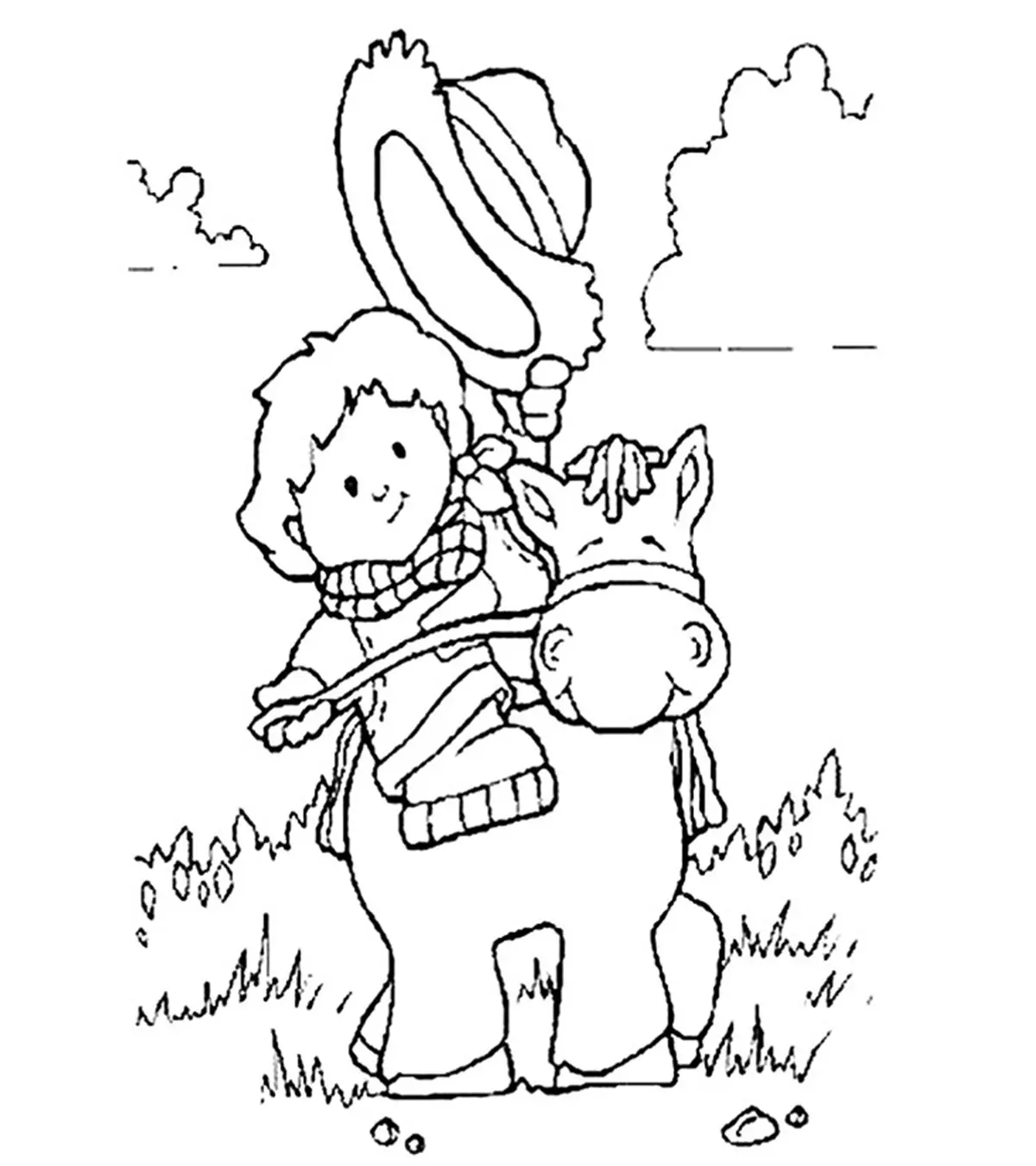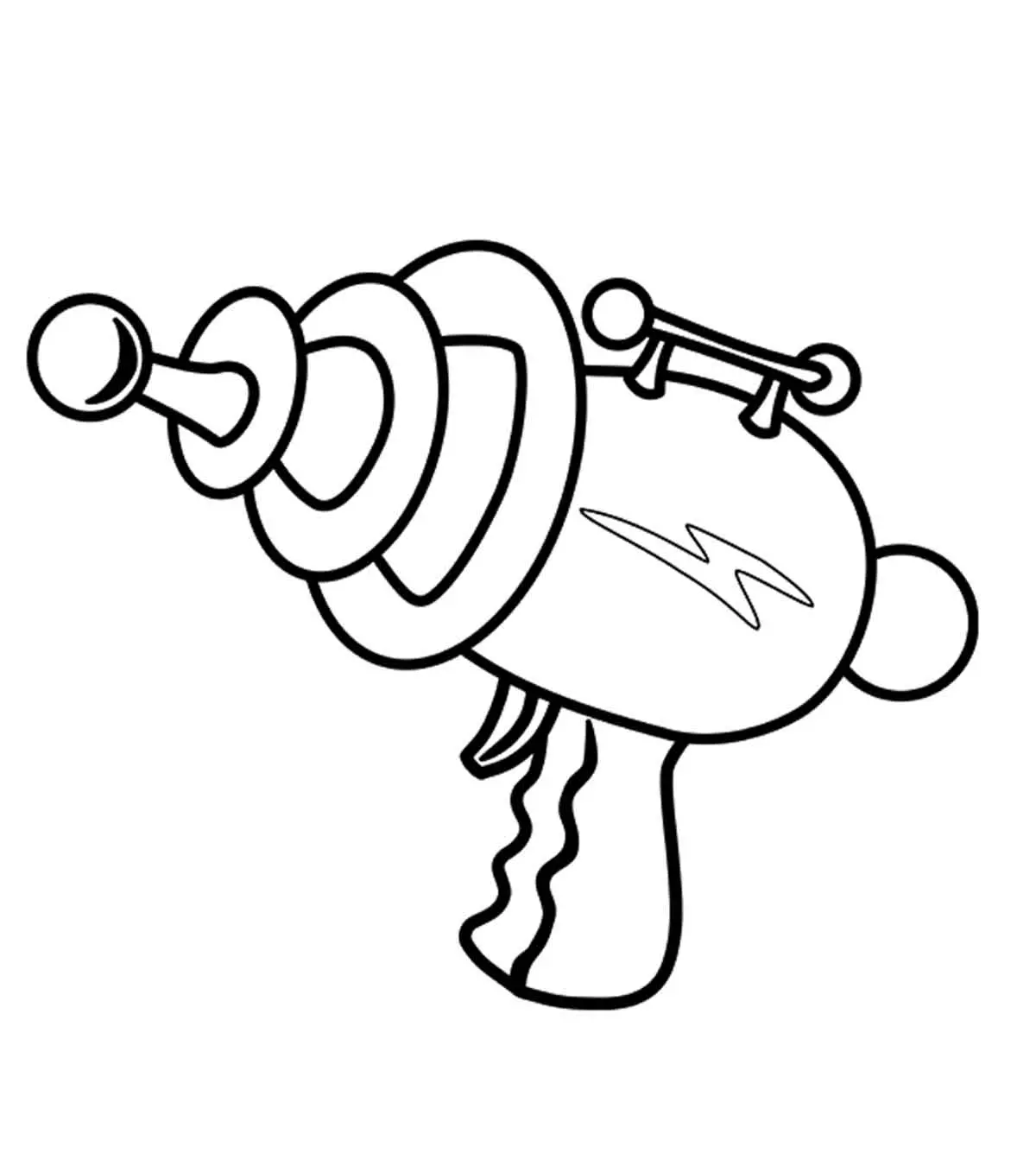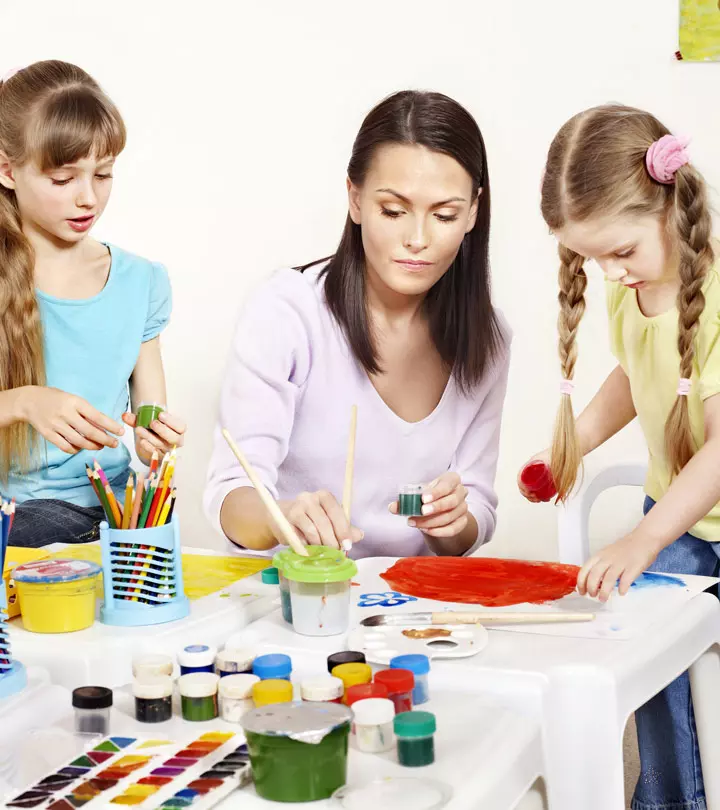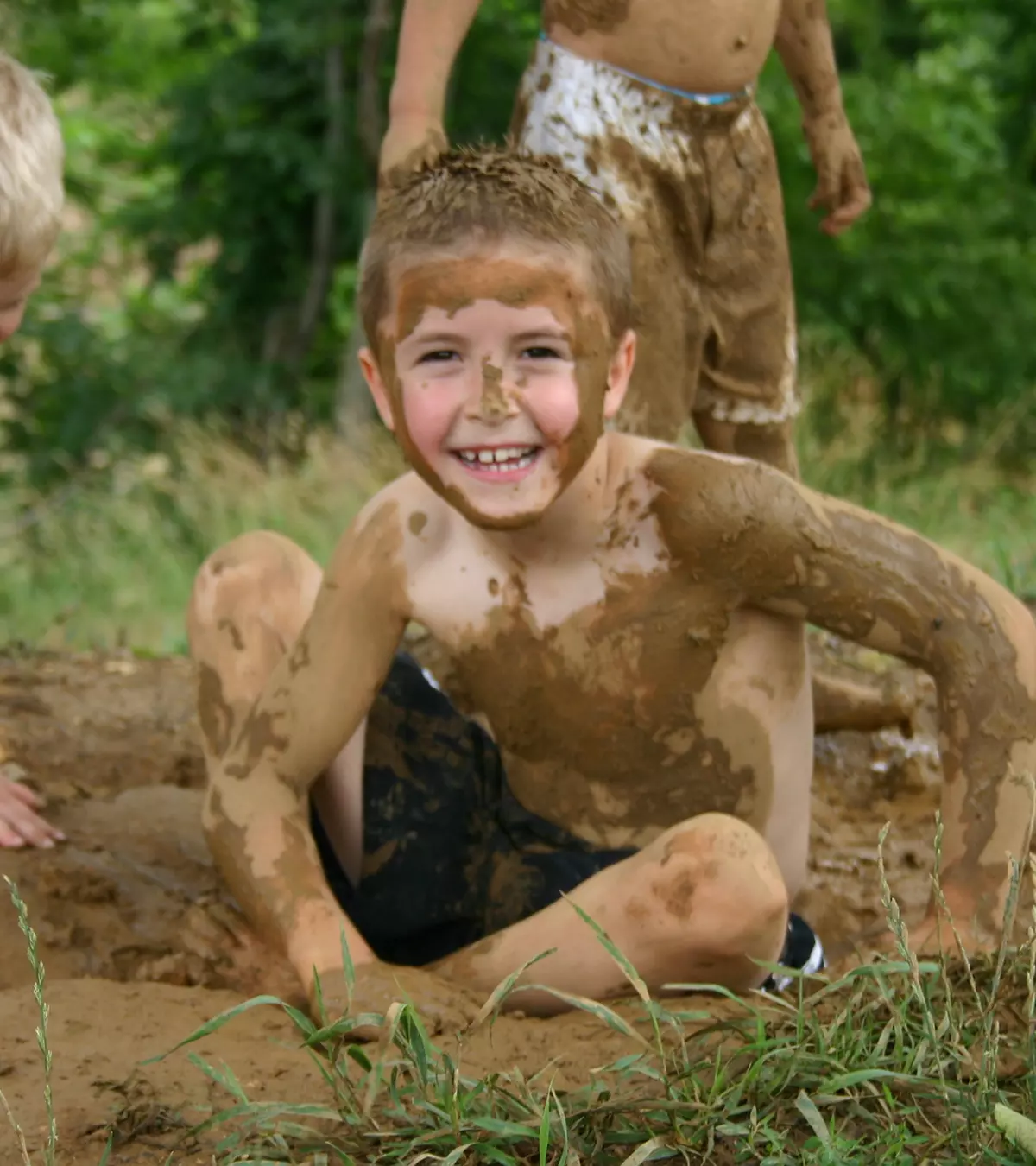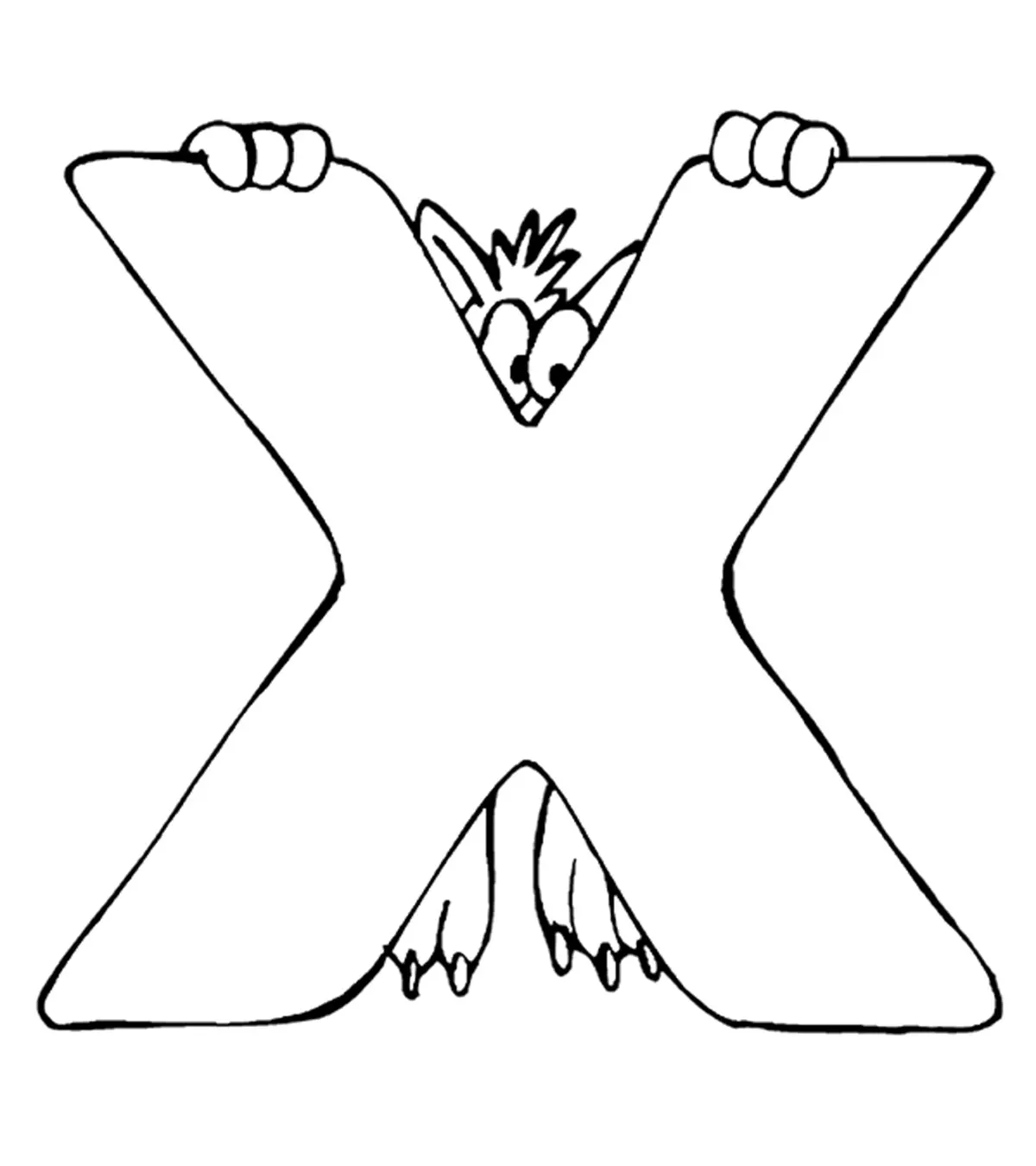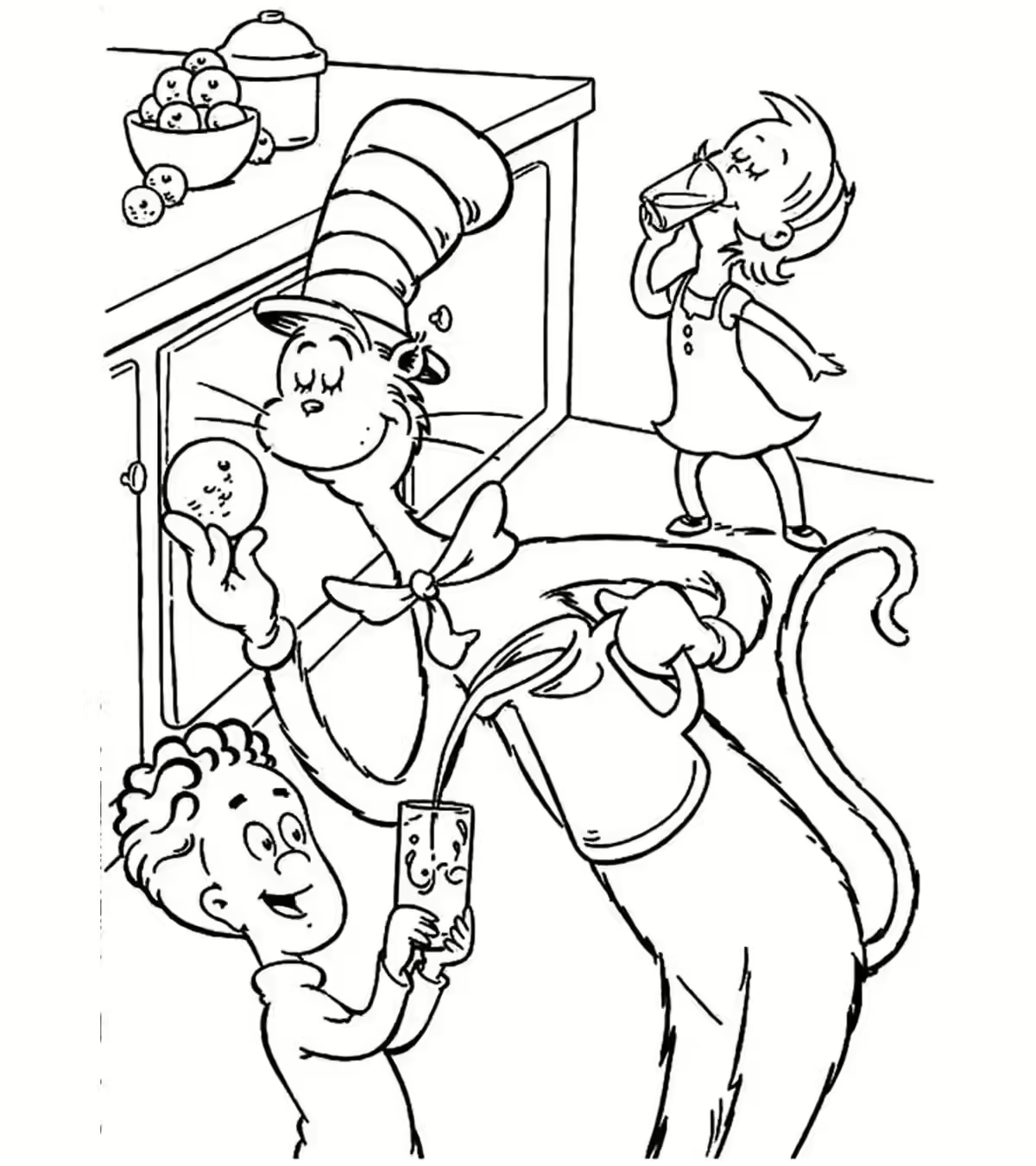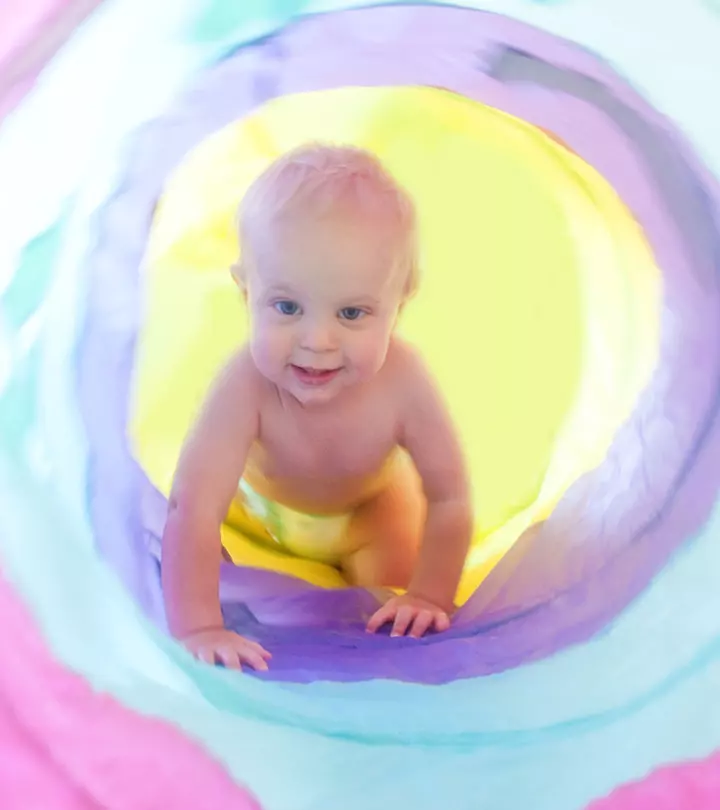
Image: Shutterstock
Gross motor activities for infants require them to use their largest and strongest core muscles such as the torso, legs, and arms (1). These activities are associated with improved physical activity and better cognitiveiAbout or involving the processes of thinking, reasoning, understanding, and learning development, resulting in enhanced cardiorespiratory fitnessi The cardiovascular system's ability to provide oxygen to skeletal muscles while exercising and reduced body mass indexiBody fat measurement based on the weight and height of an individual (BMI) (2).

According to WHO guidelines, infants should ideally be engaged in such activities for a few hours every day for improved motor skillsi An ability to move and control various body parts, especially hands, legs, and fingers (3). Keep reading this post for some fun and interactive activities and include them in your child’s routine for their motor skill development. You may learn and share them with your friends and relatives as well.
Key Pointers
- Activities such as standing, walking, sitting without support, and touching toes help develop gross motor abilities in infants.
- Encourage gross motor skill development by including activities, such as tummy time, rolling a ball, playing with blocks, and sensory bags.
- Painting and climbing boxes are some other ways of enhancing gross motor skills in children.
Gross Motor Skills In Infants
Some activities that help with gross motor skills and physical development in infants are (4):
- Standing
- Walking
- Crawling
- Throwing things
- Running
- Sitting without a support
- Kicking
For young infants, the scope of physical activities is limited, but gross motor skills increase at a rapid rate. Some general developmental milestones based on gross motor skills for infants are (5):
- Being able to stand without any support for a brief period
- Pulling things for support while standing up
- Sitting without support
- Taking small steps
- Reaching for their toes
12 Gross Motor Activities For Infants
1. Having tummy time
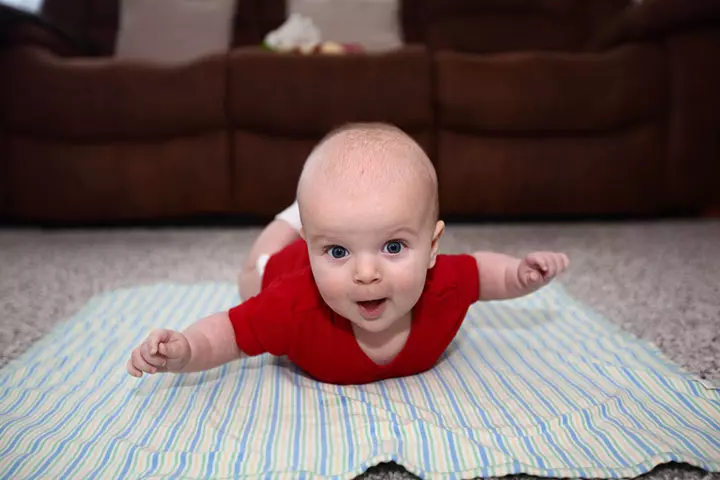
Tummy time is when you place your infant on their tummy on a play mat. Having tummy time is important for infants because it (6):
- Strengthens the shoulder and neck muscles
- Enhances motor skills as the baby needs to utilize muscles and strength to move or lift their head
- Helps prevent flat spots at the backside of baby’s head
2. Rolling a ball
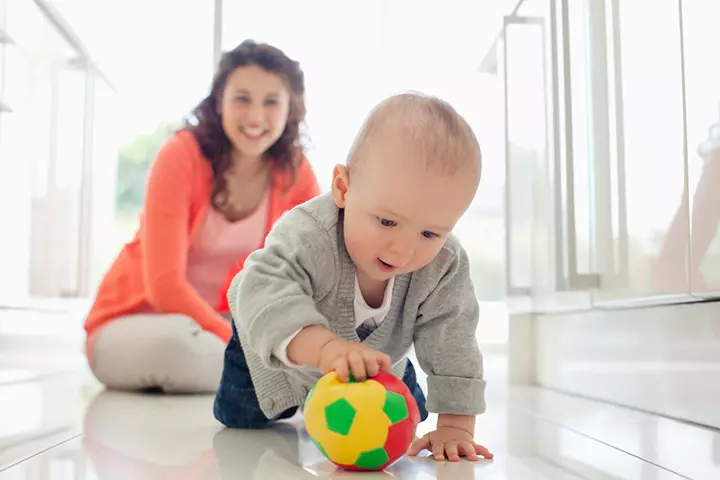
Take a ball that your little one may enjoy playing with. Make them sit with the help of support, and you sit across them. Now roll the ball towards them and let them try to get a hold of it. Do this a few times, and then let them do the same and roll the ball towards you and explore their ball skills. You can also do this activity with the help of an exercise ball.
This activity will help enhance the muscle strength of the lower body as they sit, move from one place to another, and improve their balance and hand-eye coordinationiAn important cognitive skill of performing movements with hands while being guided by the eyes .
 Do remember
Do remember3. Playing with blocks
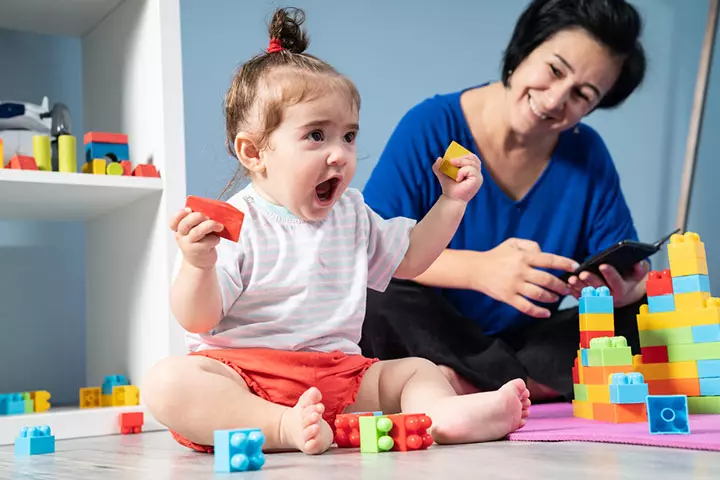
Blocks are a favorite for every infant because they can move them from one place to another. Build a tower with blocks a little far away from the reach of your infant and encourage them to crawl towards it. You can also keep one or two blocks closer to your baby for help and encouragement.
4. Allowing free movement
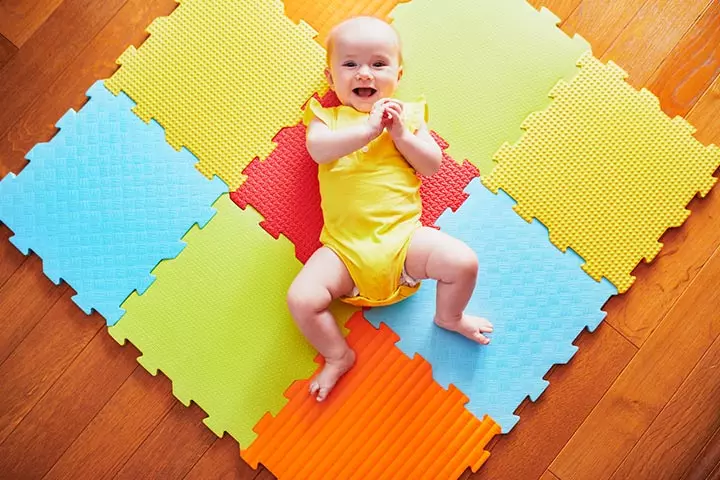
Exploration is key for infants’ gross motor development. Infants often enjoy being placed in an open area. It provides them an opportunity to freely move their hands and legs to develop and increase their body awareness.
Put your baby on a play mat and let them entertain themselves. You should supervise them at all times.
5. Having a toy bin treasure hunt

When your little one is beginning to sit up, with or without support, you should keep them entertained and enthusiastic. Make a toy bin for them to stay engaged.
Take a basket and put all their toys into it. Then place this basket by their side and let them explore. Going through the basket and playing with different toys will help develop their sensory skills.
6. Playing with sensory bags
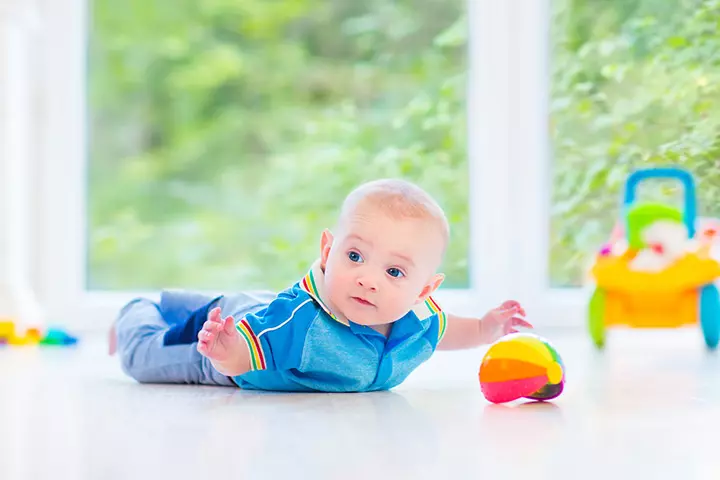
You can make DIY sensory bags for your baby to play with during tummy time or while they are laying awake on their mat, to keep them engaged.
To make a sensory bag, you will need:
- A transparent zip-lock bag
- Water
- Buttons and beads (you can use other things such as pom poms)
Take the zip lock bag and put the beads and buttons inside it. Then fill it with water and seal it properly so that the stuff inside will not leak out when pressure is applied. You can give this bag to your baby during their tummy time to keep them engaged. This activity may help enhance your baby’s sensory and eye-hand coordination skillsiThe ability to perform motor reactions that are accurate, smooth, and controlled . Please make sure to monitor your baby at all times while playing with a homemade sensory bag.
7. Painting
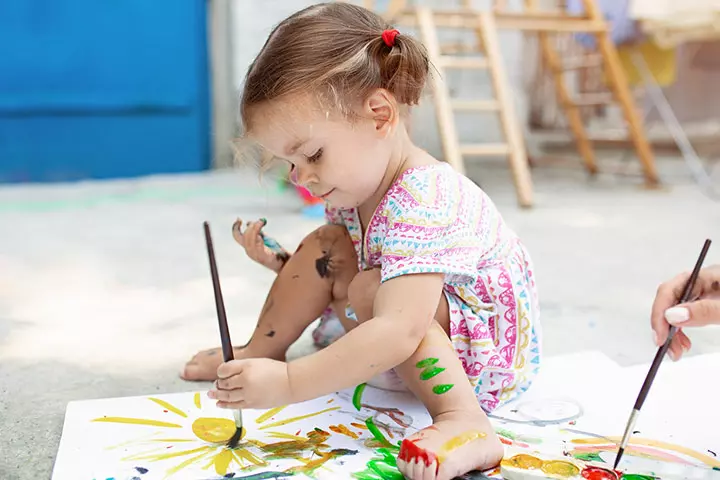
Who doesn’t love playing with colors? Grab a medium-sized sheet of paper and some colors such as watercolors. Place them in front of your child and let them create masterpieces with some splish here and there. Art projects help them move their hand muscles over a wide range of areas and develop their motor skills. The sensory stimulation from the vibrant colors and the tactile experience of painting further enhances their gross motor development. Also, remember to keep them under continuous supervision while painting to avoid choking hazards.
8. Kicking a balloon or a ball
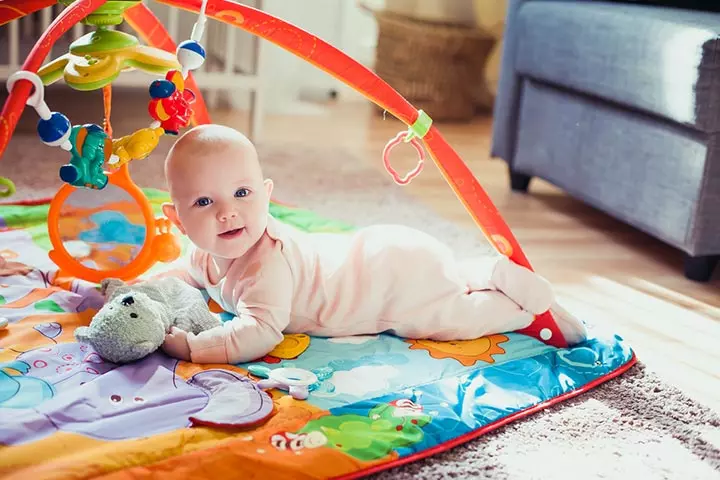
This is another activity that helps strengthen the leg muscles of your baby. Place your baby on a play mat and attach balloons or a ball surrounding the mat. Kicking and playing with the balloon or ball can keep them occupied and helps improve their physical development.
 Do remember
Do remember9. Pulling a stuffed pet
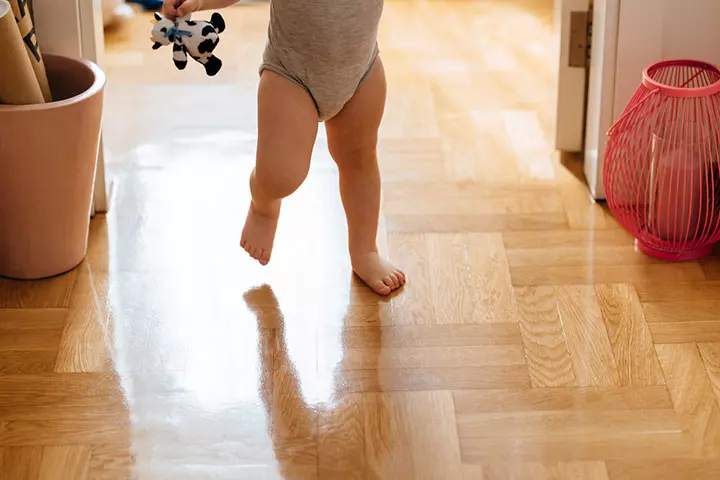
For infants who have just started to walk, this can be a fun activity. Tie a ribbon or a lace around the neck of a stuffed dog or a cat and give it to your infant. They will have fun pulling it around. You can also model this activity by doing the same with another toy for them to watch and learn.
10. Climbing a box
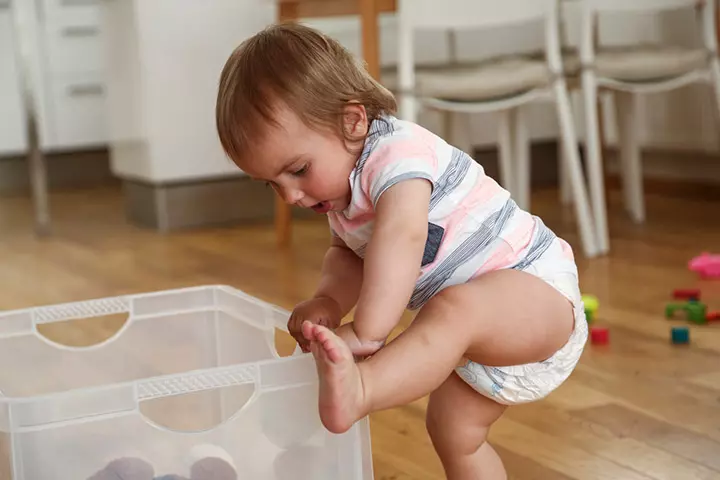
Climbing boxes can help develop the muscles of the hands and legs. Take an empty cardboard or plastic box and fill it with random things to make it heavy, so it does not tumble over while being pushed. Tape the mouth of the cardboard and decorate it with colors or colored paper to make it attractive. Now your infant can either push it or use it as a support to stand or sit on it.
11. Crossing tunnels
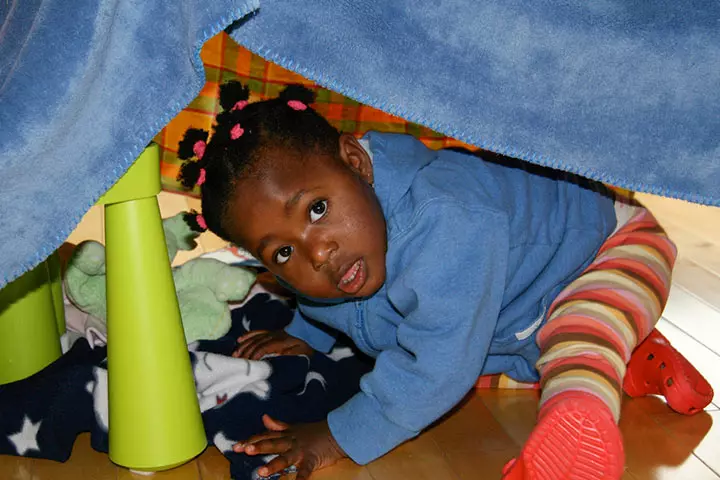
Introducing your infant to tunnels can be exciting. Such simple obstacle courses tailored to the infant’s developmental stage can promote exploration. Place a blanket in between two chairs and make a tunnel. Then, sit on the other side of the tunnel opposite to your baby and encourage them to come towards you through the tunnel. You may also take the help of toys to attract them and cross the tunnel.
12. Playing on a texture mat

Sensory experiences play a crucial role in gross motor skill development for infants. Introducing different textures to your infant can help develop their sensory skills. Take a play mat and place various toys of different textures. Now let your infant crawl around the mat, discover various textures and shapes, and enjoy themselves. Make sure the toys you choose are big enough to not be swallowing hazards.
Tips For Encouraging Gross Motor Skills
Gross motor skills may be developed with repeated exposure to the use of the major muscles. You may consider following these tips to aid in this development.
- Create a safe play environment with adequate free space to move around.
- Engage in regular exercises with your infant to enhance their core strength and physical stability.
- Set up simple obstacle courses that involve stepping over, crawling under, or balancing on soft surfaces to encourage problem-solving.
- Supervised swimming or playing in shallow water with toys, floating objects, or even splashing can engage their muscles in different ways.
- Playing with a ball by rolling, tossing, or kicking may help promote hand-eye coordination and strength.
- Expose the child to role models at home and outside to observe the movements of other children and family members.
- Positive reinforcement after the completion of certain new movements can motivate the infant to try new movements and build their confidence.
- Keep screen time to a minimum to encourage more active and challenging physical play.
Frequently Asked Questions
1. What motor skills do infants develop first?
Babies usually start developing gross motor skills as early as two months. They may start kicking their legs or moving their arms by this age. In the following months, babies will start to roll over and develop head and neck muscle control (7).
2. Is clapping a gross motor skill?
No, clapping hands falls among the fine motor skills infants begin to develop at nine months (8). Babies usually clap their hands in while singing songs or while playing games.
3. Is waving a gross or fine motor?
Waving hands requires coordination skills, muscle function, and control and is categorized under gross motor skill activities (9). Developing gross motor skills is essential as these skills aid babies in performing several body movements and activities.
Large motor activities for infants play a key role in developing their motor skills, which are essential to brain development. However, choose developmentally-appropriate motor activities for infants. Holding their head in position, tummy time, and sitting up are simple motor activities for infants during the early months of life. You may introduce them to more complex motor activities after they reach the milestones appropriate for their age. Do not worry about slight delays in achieving milestones since each child grows at a different pace. However, a significant delay must be discussed with your child’s pediatrician.
Infographic: Examples Of Gross Motor Skill Activities In Infants
Babies may display different and evolving movements that enhance their gross motor skills as they age and develop muscle strength. Here is an infographic that presents the most noted activities that babies perform routinely as a part of their gross motor skills development.
Some thing wrong with infographic shortcode. please verify shortcode syntax
Illustration: Best Gross Motor Activities And Skills For Infants

Image: Stable Diffusion/MomJunction Design Team
Fine and gross motor skills enable children to develop precise body movements necessary for normal body function. Learn how to improve them through this educational video.
References
- What are gross motor skills?
https://www.understood.org/en/articles/en/all-about-gross-motor-skills - Sanne L.C. Veldman et al., Efficacy of gross motor skill interventions in young children: an updated systematic review.
https://bmjopensem.bmj.com/content/bmjosem/2/1/e000067.full.pdf - Physical Activity.
https://www.who.int/news-room/fact-sheets/detail/physical-activity - Gross motor activities.
https://childdevelopment.com.au/areas-of-concern/gross-motor-skills/gross-motor-activities/ - Developmental milestones 6 to 12 months.
https://www.childrensmn.org/educationmaterials/childrensmn/article/15314/developmental-milestones-6-to-12-months-/ - Babies Need Tummy Time!
https://safetosleep.nichd.nih.gov/reduce-risk/tummy-time - Toddler development: Motor skills.
https://www.pregnancybirthbaby.org.au/toddler-development-motor-skills - Developmental Milestones: Fine Motor Skills and Visual Motor Skills.
https://www.choc.org/userfiles/file/Rehab-Developmental%20Milestones%20final.pdf - Gross motor control.
https://medlineplus.gov/ency/article/002368.htm - Building gross motor skills and why it matters.
https://www.canr.msu.edu/news/building_gross_motor_skills_and_why_it_matters - Motor Skills.
https://pathways.org/topics-of-development/motor-skills/
Community Experiences
Join the conversation and become a part of our nurturing community! Share your stories, experiences, and insights to connect with fellow parents.
Read full bio of Dr. Jessica Madden
Read full bio of Sanjana Bhattacharjee
Read full bio of Rohit Garoo
Read full bio of Trisha Chakraborty









